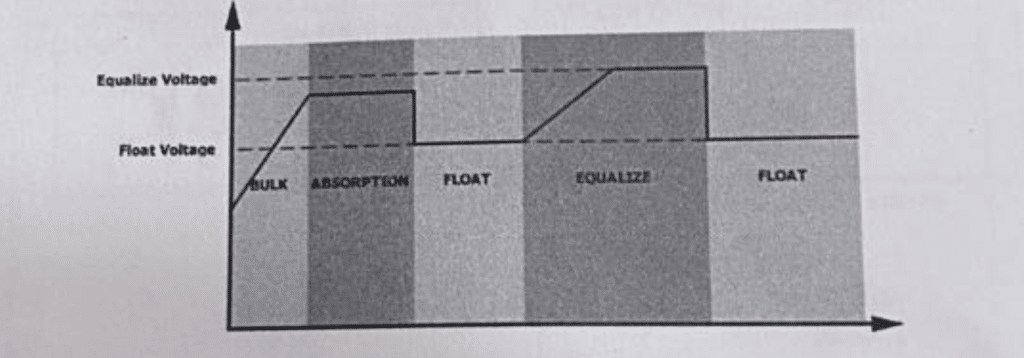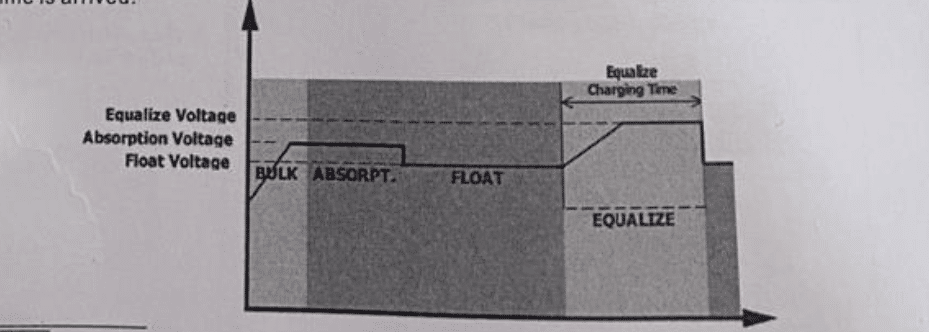Understanding Battery Equalization and Its Importance for Solar Hybrid Systems
Battery equalization is an essential function integrated into solar charge controllers, especially when dealing with lead-acid batteries. It is designed to reverse the buildup of negative chemical effects that naturally occur during regular charging cycles. This process is crucial for maintaining battery efficiency and ensuring long-term system reliability.
Mercury Solar Hybrid Inverters come equipped with an inbuilt battery equalizer, ensuring that your system maintains optimal performance without the need for additional external equipment. This built-in feature simplifies battery maintenance and helps prevent common issues like stratification and sulfation, ensuring the longevity and efficiency of your energy storage system.
What is Battery Equalization?
Over time, lead-acid batteries develop conditions like stratification and sulfation. Stratification happens when the acid concentration at the bottom of the battery becomes higher than at the top, leading to unequal charging.
Sulfation, on the other hand, involves sulfate crystals building up on battery plates, which diminishes the overall capacity and health of the battery.
The battery equalization function in Mercury Solar Hybrid Inverters works by raising the battery voltage above the normal float voltage level, reversing these chemical conditions. This process ensures that the battery performs optimally and maintains its storage capacity over time.
Importance of Battery Equalization in Series Connections
Battery equalization becomes extremely important when multiple batteries are connected in series to your inverter. Over repeated charge and discharge cycles, the voltage of individual batteries in the series can become unbalanced, meaning some batteries may have a higher voltage while others lag behind. This imbalance can lead to inefficiencies in charging, reduced overall battery capacity, and even potential damage to your system.
Without equalization, the differences in battery voltage will continue to widen, causing premature aging and reducing the lifespan of your battery bank. The inbuilt battery equalizer in Mercury Solar Hybrid Inverters automatically corrects these imbalances, ensuring that all batteries are charged evenly and maintained in optimal condition.
How to Apply the Battery Equalization Function
With the inbuilt battery equalizer in Mercury Solar Hybrid Inverters, applying the equalization function is straightforward:
- Enable the Battery Equalization Function:
- This can be done via your inverter’s charge controller monitoring LCD setting.
- First, set the equalization interval (battery equalization cycle) in program 35.
- Activate the Function:
- You can either set an equalization interval or activate it immediately using program 36. The controller will then automatically enter the equalization stage when the settings are active.
When to Perform Battery Equalization

Battery equalization is generally done when the system is in the float stage. Once the set equalization interval arrives, the inverter will automatically switch to the equalization stage.
Mercury Solar Hybrid Inverters simplify this process with their built-in equalizer, which automatically manages the equalization cycle based on your settings. Regular equalization should be performed periodically to ensure your batteries remain in optimal condition, especially when they are connected in series to avoid voltage imbalances.
Equalization Charging Time and Timeout

During the equalization stage, the charge controller applies as much power as possible until the battery reaches the equalization voltage. Once this point is achieved, constant voltage regulation maintains the battery at this level for the duration of the equalization period.
The controller will continue supplying the required voltage until the set equalized charging time is reached. Afterwards, the inverter will return the system to the float stage unless further adjustments are needed.
Extension of Equalization Time
In cases where the battery voltage doesn’t reach the required equalization voltage within the set equalization time, the controller will automatically extend the equalization period. This extension continues until the battery achieves the target voltage or the timeout setting is reached. If the battery still doesn’t reach the equalization voltage within this extended period, the inverter will halt the equalization process and return to the float stage.
The Benefits of Regular Battery Equalization
Regular equalization provides several benefits:
- Prolong Battery Life: By removing sulfate buildup and reducing stratification, equalization helps to extend the battery’s operational life.
- Prevents Voltage Imbalance in Series Connections: Equalizing batteries ensures that all batteries in a series connection maintain the same voltage, preventing unbalanced charging that can reduce the performance and lifespan of the battery bank.
- Improved Performance: Equalizing batteries improves their efficiency by ensuring a more even charge distribution across the plates.
- Cost Savings: Proper maintenance through equalization reduces the need for frequent battery replacements, lowering long-term costs for solar system owners.
With the inbuilt equalizer in Mercury Solar Hybrid Inverters, maintaining battery health and balance, especially in series connections, becomes a seamless and automated process, ensuring that your system runs at peak efficiency.
Why Choose Mercury Solar Hybrid Inverters with Inbuilt Battery Equalization?
Mercury Solar Hybrid Inverters are designed for optimal system performance, integrating key features like inbuilt battery equalization to ensure that your energy storage system remains in top condition. This feature eliminates the need for additional external devices, reducing setup complexity and ensuring that your batteries stay healthy, especially when connected in series.
At Mercury Direct, we offer a wide range of advanced solar hybrid inverters equipped with inbuilt battery equalizers to maximize system performance. Contact us today to learn more about our innovative energy solutions!
FAQs about Battery Equalization
Why is Battery Equalization important for off-grid solar systems?
Battery equalization is crucial for off-grid solar systems because it ensures all batteries in the system maintain the same voltage. Without equalization, batteries can become unbalanced, leading to reduced performance, shorter lifespan, and the risk of system failure. By equalizing your batteries, you maintain system efficiency and avoid costly replacements.
How often should I equalize my batteries?
The frequency of battery equalization depends on your battery type and usage. For lead-acid batteries, it’s recommended to perform equalization every 1 to 3 months. However, heavily used batteries or those in extreme conditions may require more frequent equalization to maintain optimal performance.
Can equalization be done automatically?
Yes, modern solar hybrid inverters, like the Mercury Solar Hybrid Inverters, come with an inbuilt equalizer that can automate the equalization process. Once the function is activated, the system will automatically manage the equalization cycle based on your settings, ensuring your batteries remain balanced without manual intervention.
What happens if I don’t perform battery equalization?
If you neglect to perform battery equalization, your batteries can suffer from stratification and sulfation, leading to uneven charging and potential voltage imbalances. This can result in reduced battery capacity, shorter lifespan, and poor system performance over time. Regular equalization helps to prevent these issues.
Does battery equalization affect my inverter’s performance?
Battery equalization primarily impacts the health of your battery bank, but it can indirectly affect your inverter’s performance. Balanced, well-maintained batteries ensure a stable power supply, which allows the inverter to operate more efficiently. Neglecting equalization could lead to battery failure, which would affect the entire solar system, including the inverter.
Is battery equalization necessary for all types of batteries?
Battery equalization is particularly important for lead-acid batteries, including flooded and sealed types. However, it is less necessary for lithium-ion batteries, which are more resistant to issues like sulfation and voltage imbalance. Always consult your battery manufacturer’s guidelines to determine if equalization is required for your specific battery type.


V good information jazakllha